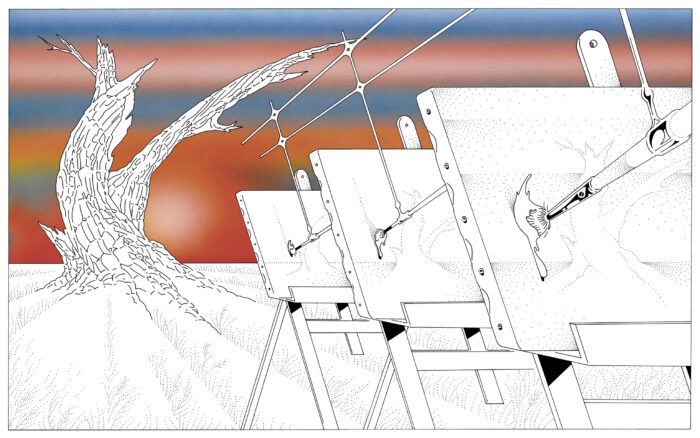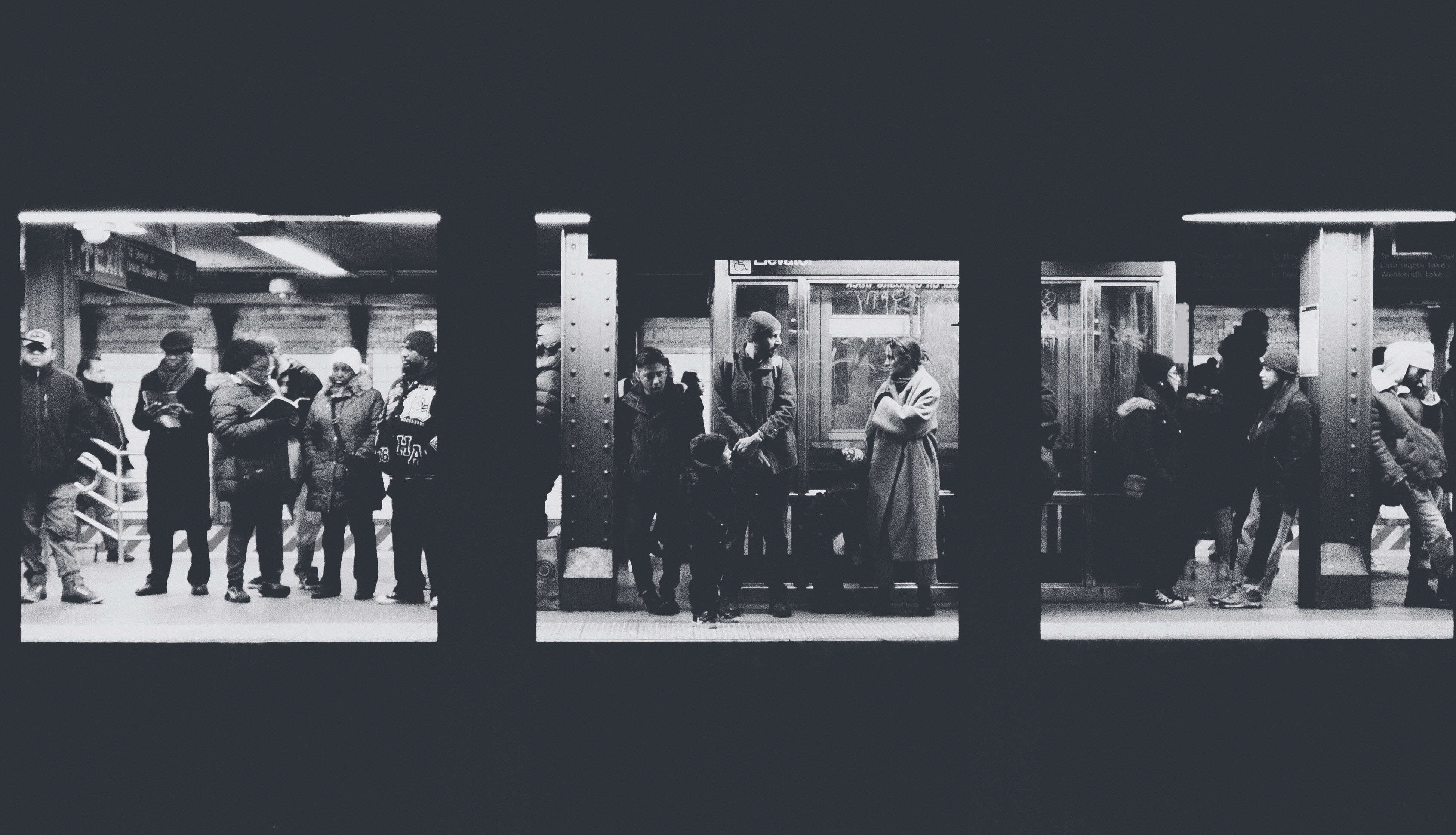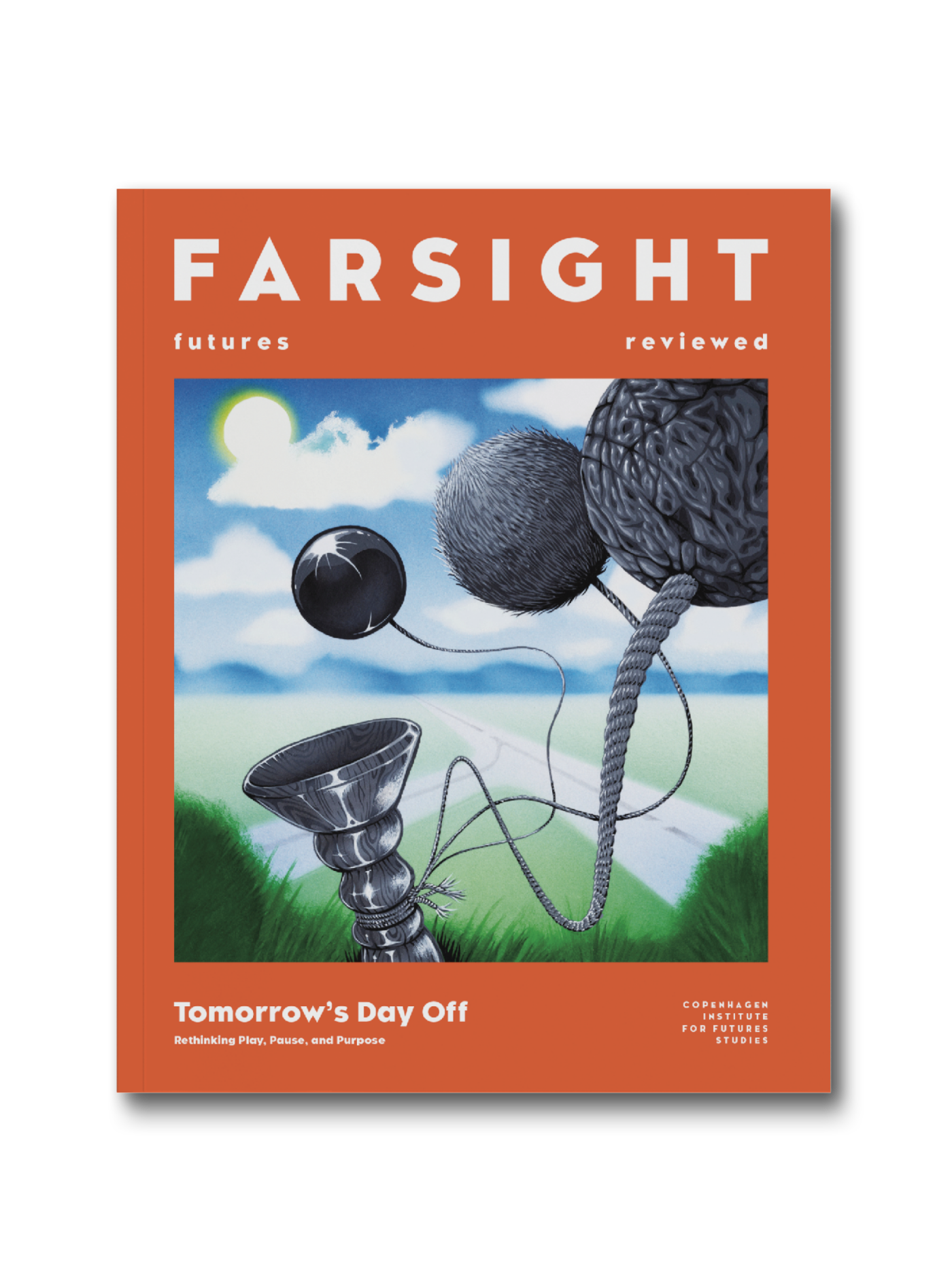
In turn, we use cookies to measure and obtain statistical data about the navigation of the users. You can configure and accept the use of the cookies, and modify your consent options, at any time.

Why We Shouldn’t Wish Work Away
A Q&A with Professor of Philosophy Jean-Philipe Deranty on why human labour is something we ought to preserve – not try and escape.
Image: Simon Shim
We cannot, and should not, wish work away, says Jean-Philippe Deranty, Professor of Philosophy at Macquarie University, Sydney. There may be plenty of things to fix in the modern world of work but anyone longing for a ‘post-work’ future of total human freedom and leisure should temper their expectations. We need work, Deranty believes, partly because it acts as a social integrator that binds societies and communities together.
Jean-Philippe Deranty researches key issues in contemporary social and political life using the tools of critical social theory. In recent years, his research has focused on the significance of work for individuals and communities.
What’s wrong with the current model of work, and what do you think needs to happen to change it?
The issue is that work today exists mostly to fit capitalistic imperatives, meaning that most of it is done in organisations that are specifically set up to compete in a market and make profits while discounting externalities, especially ecological ones. It doesn’t consider all the factors of production and it’s geared towards the creation of exchange-value rather than use-value.
If we want to keep surviving and flourishing in the near, mid, and far future, we first need to look at what the true purpose of work is, which is to be an instrumental action that aims to fulfil a need, usually a human need but not necessarily. We will then need to change how we organise the economy, and that means changing how we organise work and how we think of work as well.

Broaden your horizons with a Futures Membership. Stay updated on key trends and developments through receiving quarterly issues of FARSIGHT, live Futures Seminars with futurists, training, and discounts on our courses.
become a futures memberDo you think the idea of a ‘post-work society’, where technological and societal advances have meant that human beings no longer need to work for a living, is feasible? How would it impact social relations?
I don’t think we’ll ever move to a post-work society. But for the sake of argument, let’s assume that the progress of technologies like AI and robotics accelerate exponentially and that very soon entire sectors and industries will no longer need humans to function. I would be very worried about the implications of such a scenario.
When people speak positively about the idea of a post-work society, they assume without justification that it will be a good thing. But if we look at the historical records, we can see that human beings have always come together because we need each other for survival. That’s what work does – it brings people together because people need each other. We might dislike each other, but we still need to work together.
If we don’t have that, what will then be the social logic that’ll bring us together? History shows us that if it isn’t work, it tends to be something else that’s rather unpleasant and often based on an exclusionary logic. Humans are good at segregating, but work forces you to collaborate with people different from you, no matter what their background, race, religion, and sexuality might be.
What does a better future of work look like in your opinion?
There’s a possible scenario that’s quite pessimistic, one that’s characterised by polarisation and mass unemployment. The risk is that technology will not lead to the kind of policies that post-work theorists advocate but instead to greater inequality between those whose jobs have been automated and those who are in sectors that aren’t automated or who have skills to remain employed. It’s a scenario that makes it clear to what extent the solutions to humanity’s problems are not a post-work scenario but one in which we redefine work.
Automation might destroy several industrial jobs but even if that happens, there’s still going to be an enormous amount of work to be done. That is if we think of work as simply a means to fulfil the needs of people, many of which go beyond commodities. We have emotional and psychological needs that machines can’t yet fulfil, so there will still be a lot of work to be done.
If we abandon short-termism, the narrow focus on profit, and instead insist on usability, real utility, recyclability, and need fulfilment when we think about work, then we can start to see an image of a more sustainable form of work. The future of work, and the future with work, should be focused on producing stuff and doing things that are truly useful for others in a way that is linked to a circular economy and a reduction of wastage.
The anti-work discourse has gained momentum in recent years. There’s been the trend of ‘quiet quitting’, and some even believe laziness can be a means for workers to reclaim power and a way to protest the modern culture of work. Are these legitimate answers to the problems you describe?
What I find ironic is that most of the scholars who defend idleness seem to work a lot! It takes quite a lot of work to publish a book against work. The anti-work discourse is a very popular position today and most advocates
base their argument on the idea of a kind of dualism of freedom and necessity – this idea that work is a form of necessity, and that we cannot be free in it. We must therefore aim for a post-work world where we can be free. That way of thinking, in philosophical terms, is rather naïve. Freedom to me isn’t just the antithesis of necessity, it’s more complicated than that. Freedom is found within necessity, in facing necessity, not ignoring it, or thinking humans could ever liberate themselves from it.
Then there’s the question of whether idleness is satisfying to us. The French philosopher Blaise Pascal had this famous saying: “All humanity’s problems stem from people’s inability to sit quietly in a room alone.” What he means is that we need to be active and engaged and to do things that are meaningful to us. We can’t stand to be bored, and we can’t stand being stuck in a room alone. We need others around us, and we need to be active and engaged.
Is the idea that human societies are ‘work societies’ universal across regions and cultures?
Yes, and it can be proven historically. Work is central to so many human cultures in multiple ways. It functions as a source of social integration. That can come with hierarchical structures with a lot of inequalities built into them of course. But still, in many cultures, you’re integrated through the work that you do. Entire cultures are organised around work in the sense that this is how people organise their day, it defines what individuals are able to do, what they know, how they view the world even. All of this is influenced by the kind of work they do. This isn’t just true in a Western context. Almost everywhere you look, across various regions and cultures, social recognition, people’s identity, social bonds, it all comes from work.

Explore the world of tomorrow with handpicked articles by signing up to our monthly newsletter.
sign up hereWhat do you make of the idea that the gig economy is a kind of blueprint for the future of work – that more and more of us will work in fluid ways, and that work and leisure will increasingly overlap?
We must be cautious when we try to evaluate the gig economy as it’s incredibly diverse, with the motivations and the conditions being quite varied. The gig economy contains both horrible and totally alienating work, like AI-driven warehouse work, as well as platform work that is much more cooperative and democratic. It’s an ambivalent and complex space. One thing to bear in mind is that some gig work might in fact be based on human-machine interaction, where there’s a complementarity relationship between humans and technology. In some cases, it’s possible to have increased cooperation among workers with the help of automation and work that is premised on sustainable values. Platform work therefore doesn’t have to lead to a dystopian scenario.
You’ve already made it clear you don’t see a post-work future as a very likely or desirable possibility. Imagine instead that we, 20 years from now, have moved towards a society where we still work, but much less than we do today. Do you think work loses its crucial role as our primary identity marker? Will what we do outside of work, for instance for leisure, increasingly be how we define ourselves?
If you mean work as employment, then I’d say a lot of people today already don’t form their identity through their employment. There are many other ways in which people do this, including through an activity that’s dear to them.
A lot of young people form their identity through online communities. For some of them, maintaining this identity becomes a form of work as well. Being an influencer on social media is an example of this.
If you mean work as an activity that’s meaningful to us, which we are passionate about – gardening or playing music or chess – and which fulfils some real needs, then it can still be identified as work. If this is the case, then I don’t see how it will change in the future. We need work and we also need each other, so it’s a social necessity. Maybe, in the far future centuries from now, we might not need to work and will be solely focused on leisure, but before we get there, and if there’s really no work at all for us to do, we’ll be deeply unhappy.

This is an article from FARSIGHT:
Tomorrow’s Day Off
Grab a copy here